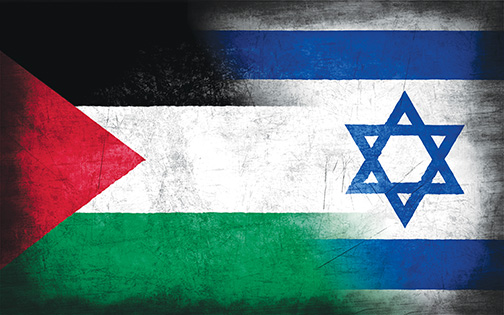
The mainstream narratives of the Israeli-Palestinian conflict have lacked nuance. Barack Obama’s comments about the current war were a little different.
He supported President Joe Biden but added that people should acknowledge that “Palestinians have also lived in disputed territories for generations; that many of them were not only displaced when Israel was formed but continue to be forcibly displaced by a settler movement that too often has received tacit or explicit support from the Israeli government; that Palestinian leaders who’ve been willing to make concessions for a two-state solution have often had little to show for their efforts; and that it is possible for people of good will to champion Palestinian rights and oppose certain Israeli government policies in the West Bank and Gaza without being anti-semitic.’’
Obama didn’t mention that Israeli Prime Minister Benjamin Netanyahu was a pain in the ass when Obama was president. While he was vice president, Biden acted as a mediator between the two heads of state.
After the Oct. 7 Hamas attacks, Biden gave Netanyahu a bear hug. News outlets reported that the administration privately expressed concern about civilian casualties and, very early on, said that Israel should not re-occupy Gaza. As progressives started to protest while watching Gaza City being flattened on TV, the administration became more publicly critical of Netanyahu.
Netanyahu ambiguously says he intends to exert “indefinite security control over Gaza” when the war is over. That would likely mean an endless war. Biden, the European Union and Arab allies are talking about a two-state solution. Netanyahu isn’t particularly interested.
On Oct. 7, Hamas’ horrific and gleeful butchery of men, women, children and infants was
an enormous shock for Israelis. It was filmed and shared on social media.
Haggai Matar writes in +972, a progressive joint Israeli-Palestinian publication, “…The dread Israelis are feeling right now, myself included, is a sliver of what Palestinians have been feeling on a daily basis under the decades-long military regime in the West Bank, and under the siege and repeated assaults on Gaza. The response we are hearing from many Israelis today — of people calling to ‘flatten Gaza,’ that ‘these are savages, not people you can negotiate with,’ ‘they are murdering whole families,’ ‘there’s no room to talk with these people’ — are exactly what I hear occupied Palestinians say about Israelis countless times.”
Samah Salaime, a Palestinian feminist writer and activist, wrote a tribute in +972 to her friend Vivian Silver, a Canadian-Israeli peace activist who lived in Kibbutz Be’eri, which was attacked on Oct. 7 by the Hamas butchers, murdering more than a hundred and kidnapping many others. It was assumed that Silver had been abducted.
Salaime said she imagined “a thousand times” how the 74-year-old grandmother would comfort the kidnapped Israeli kids and try to communicate in her “mangled Arabic” with her captors and the Palestinian kids scared of the Israeli bombs. She imagined a future headline saying “Peace Activist Released.” Instead, the news said that Vivian Silver’s body had been identified by her DNA. She had been murdered in her home.
Vivian was born in Winnipeg in 1949, and immigrated to Israel in 1974. For decades, she was a social activist involved in projects promoting women’s rights and advocating for peace. In 1999, she became co-director of the Arab-Jewish Center for Equality, Empowerment, and Cooperation, part of the Negev Institute for Strategies of Peace and Economic Development, an organization that focuses on education, development and leadership for the Bedouin community of the Negev and Arab citizens throughout Israel.
She was active in Women Wage Peace and a volunteer with The Road to Recovery, which helps transport cancer patients from Gaza to Israeli hospitals. She was a board member of the human rights group B’Tselem, which strives to end “Israel’s regime of apartheid and occupation” since “that is the only way forward to a future in which human rights, democracy, liberty and equality are ensured to all people, both Palestinian and Israeli, living between the Jordan River and the Mediterranean Sea.”
Oct. 7 was a political/social earthquake like 9/11. Peter Beinart, editor of Jewish Currents, said shortly after Oct. 7, “My basic bedrock assumption is that the fate of these two peoples are intertwined. Neither of them are going anywhere.”
This crisis also impacts the whole world with a moral interconnectedness. Israel had to respond militarily, but we need a negotiated ceasefire now.
This opinion does not necessarily reflect the views of Boulder Weekly.
Have a different view of things? Email your take to [email protected]














